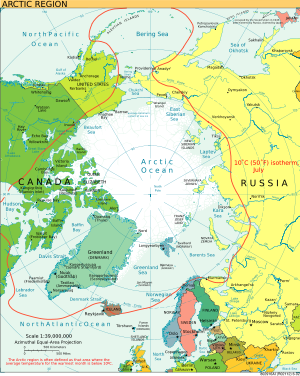
A heart clutching story I heard recently exemplifies the world of hurt and economic devastation wrought by the price of a gallon or liter of gas. A lady went in to a local mini-mart. She stood in line and bought just one gallon of gas. It was all she could afford. One single gallon. Dire as her situation is, she is definitely not alone anywhere in the world.
The scary gas story is playing out around the world in Chinese villages and cities as prices went up 16 %, along the Kinshasha highway in Africa, at diesel pumps in England, the fenced in folks in Gaza to the daunting amounts of the flammable liquid needed for fleets of trucks to transport goods across continental Europe. In the Philippines, fuel prices (P57.96 per liter including VAT) rose for the 15th time since January. Last year in Burma, the junta raised fuel prices 500% in one night to spark the long running Marching Monk rebellion as the poor bear the brunt of the increases. India is seeking to regulate oil prices within a range. Energy producers/speculators/big oil companies are gilding their own wallets while taking matches to pounds, dollars, pesos, rubles of the planets lesser beings who were already living paycheck to paycheck and getting angrier by the nanosecond.In Gansu Province, Zhang Li, a tour guide, waited in line for more than an hour, hoping to fill up the tank on his Land Rover Freelander before the higher prices went into effect.
"I made it just in time," he said. "They stopped serving gas at the old prices just 20 minutes after I left."
The complaints from Chinese about high gasolineprices might not elicit sympathy from American or European consumers: hovering at $3 a gallon, or 79 U.S. cents a liter, with the new increase, gasoline in China costs 25 percent less at the pump than it does in the United States.
As a matter of policy, the Chinese government sets gasoline and diesel prices well below international market prices to encourage economic growth. In 2007, China's subsidy of gasoline alone was $22 billion, close to 1 percent of its gross national product.

President Bush a la Oliver Twist appealed to King Abdullah in May to sing for his supper for a bigger soup ladle of oil into his
 energy crisis made-in-America mess bowl. The Kings' ministers politely told him to pound sand. As the price of a single barrel of oil becomes the equivalent of a gold ingot, the Kingdom relented. Today, as co-dependents, the oil-mega rich Saudis held an OPEC meeting at a Red Sea resort to announce an increase of daily
energy crisis made-in-America mess bowl. The Kings' ministers politely told him to pound sand. As the price of a single barrel of oil becomes the equivalent of a gold ingot, the Kingdom relented. Today, as co-dependents, the oil-mega rich Saudis held an OPEC meeting at a Red Sea resort to announce an increase of daily  production by at least 200,000 to try to tamp down speculators in the market while supplying a potential panacea of relief for millions around the world at the pump and most notably Britain's Prime Minister Gordon Brown with three dozen energy ministers from around the world. There is no guarantee that an increase in production will reduce prices or the rampant speculation as their are countries that want their oil purchased too: Nigeria, Venezuela, Cuba, Iraq, Iran, Russia just to name a few. China, India and Japan are not shy about bidding against the USA for it either with the exceptions of Venezuela and Iran.
production by at least 200,000 to try to tamp down speculators in the market while supplying a potential panacea of relief for millions around the world at the pump and most notably Britain's Prime Minister Gordon Brown with three dozen energy ministers from around the world. There is no guarantee that an increase in production will reduce prices or the rampant speculation as their are countries that want their oil purchased too: Nigeria, Venezuela, Cuba, Iraq, Iran, Russia just to name a few. China, India and Japan are not shy about bidding against the USA for it either with the exceptions of Venezuela and Iran.200,000 (more per day) x $140 a barrel = $28,000,000 (more per day) give or take a price reduction. Will China buy it all up or shall some enterprising speculator say this is temporary. To combat that, the second part of the royal Saudi announcement was to continue toFor Saudi Arabia, the meeting was a rare foray into the spotlight, and an opportunity to underscore that the oil-rich kingdom was aware of growing anger and frustration caused by surging prices in oil-importing countries.
A seven-fold increase in the cost of oil since 2002 is causing growing economic and political pain in both industrialized countries and the developing world.
King Abdullah of Saudi Arabia, who called for this meeting just two weeks ago, addressed the oil and energy ministers of 35 nations in a vast ballroom, saying he understood the pain that $140 oil was causing across the globe. He confirmed an expected increase in Saudi production by 200,000 barrels a day. News of that was leaked earlier this week, and was already factored into the still-surging market.
 up production to levels never seen before for a longer duration lasting at least a year. But that poses some downstream capacity issues that the Saudis and other OPEC
up production to levels never seen before for a longer duration lasting at least a year. But that poses some downstream capacity issues that the Saudis and other OPEC participants say will be offset as they build refineries and other assets to handle the demand. Things that makes me go hmmmm, because that means a further dependence on Saudi oil as the economy becomes even more tied to Saudi oil, protection of the region's oil and does little to wean the world away from fossil fuel addictions, as the more oil and gas consumption rises, the worse greenhouse gases heat the planet. What a lovely feedback loop the world finds itself in as the Saudis strengthen their hand in ways to affect national security and global foreign policy decisions.
participants say will be offset as they build refineries and other assets to handle the demand. Things that makes me go hmmmm, because that means a further dependence on Saudi oil as the economy becomes even more tied to Saudi oil, protection of the region's oil and does little to wean the world away from fossil fuel addictions, as the more oil and gas consumption rises, the worse greenhouse gases heat the planet. What a lovely feedback loop the world finds itself in as the Saudis strengthen their hand in ways to affect national security and global foreign policy decisions.
 Then there is the drilling issue. For ten years, an oil preserve race between Canada, USA, Russia and evenCuba is saying they have rights to drill and that's just a hop skip and an innertube ride away from Florida's gold coast of beaches. One spill would lose billions of dollars in tourism, depress coastal real estate prices and no recovery for already fragile and hurricane battered ecosystems.
Then there is the drilling issue. For ten years, an oil preserve race between Canada, USA, Russia and evenCuba is saying they have rights to drill and that's just a hop skip and an innertube ride away from Florida's gold coast of beaches. One spill would lose billions of dollars in tourism, depress coastal real estate prices and no recovery for already fragile and hurricane battered ecosystems. John McCain burbled about his reversal no drilling of America's coastal waters while speaking to Bush/Cheney crony Texas Oilmen. Drill in pristine areas that would never again host the ecological diversity needed to ward off the storms and wild weather sparked from oil in the first place.
Drilling yields not one drop in
 production before an end of President Obama's second term. McCain's pander designed to offset the political pain in the US to the the single gallon of gas that now costs more than a Happy Meal. In the US, there are billions of acres of leases already going unused without the need to give the greedy oil companies earning the biggest profits in the history of capitalism more while simultaneously ruining the only planet we have to live upon.
production before an end of President Obama's second term. McCain's pander designed to offset the political pain in the US to the the single gallon of gas that now costs more than a Happy Meal. In the US, there are billions of acres of leases already going unused without the need to give the greedy oil companies earning the biggest profits in the history of capitalism more while simultaneously ruining the only planet we have to live upon.None of this immediately alleviates the price for a gallon or liter of gas around the world. Food prices are wedded to oil prices. And there are no guarantees that even with OPEC stepping in today that tomorrow sees a long term decline in prices. What is at stake is finding a way to dramatically increase the use of alternative energy for those in dire straits while preserving the environment. The only people who can afford the rise in oil prices are the oil speculators and energy producers.

From the esteemed Richard Heinberg, The Party's Over: Oil, War and the Fate of Industrial Societies.











No comments:
Post a Comment